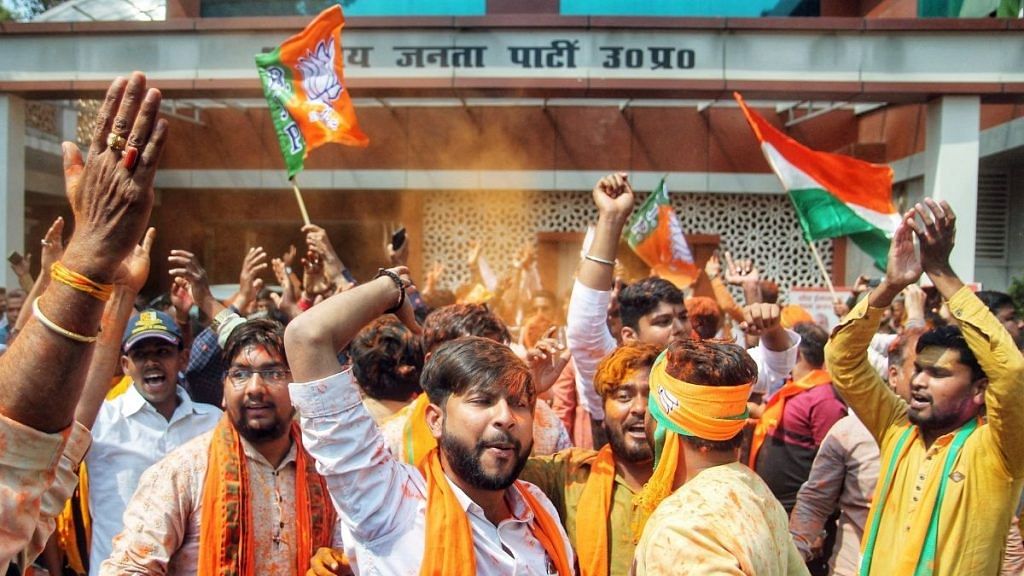The murky world of campaign finance in India is in dire need of reform. The use of money from a variety of underhand sources is common knowledge. However, it is interesting to note that the legal framework itself contains several loopholes brought in to make donations from corporates and other third parties easier to conceal. The electoral bonds scheme of 2018 is one such measure which strikes at the heart of a citizen’s ‘right to knowledge’.
Brought in to clean up campaign financing, the electoral bonds scheme introduced interest free bonds purchasable within a ten-day time period in each quarter by individuals, associations or companies to donate to political parties. The political parties must redeem such bonds within a period of 15 days. The bonds are sold only by specific branches of the State Bank of India in multiples ranging from Rs 1000 to Rs 1 crore. However, its most striking feature is the anonymity it provides to the purchasers of such bonds. While the State Bank of India has Know Your Customer (KYC) policies, neither the purchaser nor the political party is required to put forward information about who they have donated to and who they have received donations from respectively, in the public domain.
Also read: Defections are a threat beyond election results today. Here are five ways we can fix it
Electoral bonds and lack of transparency
The electoral bond system was introduced by Finance Act, 2017. To understand how exactly these bonds promote secrecy, amendments brought in by the act need to be looked into. Section 29(C) of the Representation of People Act, 1951 mandates treasurers of political parties to make a report documenting contributions made in excess of Rs 20,000 which is to be submitted to the election commission. However, after the Finance act, several provisions diluted this section. The introduction of the lines “Provided that nothing contained in this subsection shall apply to the contributions received by way of an electoral bond” effectively nullifies the safeguard mentioned in section 29(C) and does not impose a positive obligation upon political parties to document such vital information.
Amendments to the Companies Act, 2013 further accentuate this opacity. Section 182 of the act deals with political contributions made by companies. Before the Finance Act of 2017, proviso 1 provided a limit to the donations a company could make by putting a threshold of allowing donations not more than 7.5 per cent of the aggregate profits in the past 3 financial years of that company. However, this proviso was deleted by the Finance Act, 2017, effectively allowing companies to donate as much as they wanted to without any sort of restraint infusing more and more money into the muck of election campaigning.
Sub-section 3 after the amendments of the Finance Act required companies to disclose only the total amount donated by it in its profit and loss accounts. Originally, this section posed a duty on the company to name the political party they were donating to along with the amount of such donation. This very fact makes it easier for corporations and other pressure groups to significantly influence elections without any public scrutiny. The election Commission has also very rightly pointed out that these provisions could very easily allow shell companies to be used for nefarious purposes.
The electoral bond scheme must be read with the changes that have been brought in the regulatory framework along with it, not to mention the changing of the definition of ‘foreign sources’ under FCRA, 2010. However, it is important to ask why exactly these specific provisions are problematic in nature.
A citizen’s ‘right to know’ flows directly from Article 19(1)(a) of the constitution as has been held in Union of India v. Assn. for Democratic Reforms. In this, the apex court held that since individuals expressed themselves during elections by voting, the Right to Know about the contester’s antecedents would come under the ambit of Article 19(1)(a). Political parties also come under ‘public authorities’ (at least in theory) under the RTI Act according to the central information commission in Anil Bairwal vs Parliament of India further proves this point. Since political parties come under the definition of ‘public authorities’ citizens naturally have the right to seek information about the sources of donations received by political parties under the RTI Act.
The government on its part has argued that the privacy of corporations, associations and citizens must be allowed so that political opponents do not treat such people vindictively. Since campaign finance deals with questions of elected representatives and citizens’ right to know about their candidates the privacy argument cannot be prioritized over larger public interest.
The electoral bonds scheme goes entirely against the fundamental tenets of free and fair elections. To allow the citizenry to make informed decisions about their leaders and their sources of funding, the electoral bonds scheme must be rethought.
The author is a student at National Law University, Delhi. Views are personal
